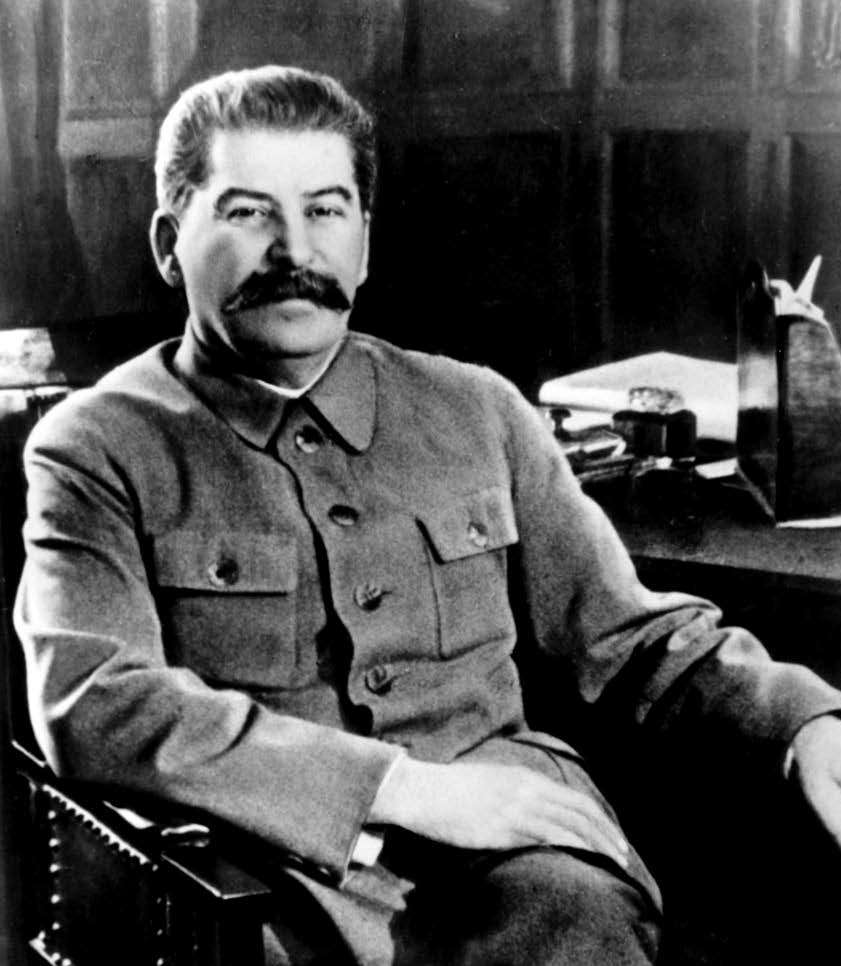Stalin Joseph

Stalin Joseph (Jugashvili) (1879-1953), Soviet politician and statesman. Born in Gori, Georgia, in a shoemaker’s family. In 1894 he graduated from the Theological Seminary in Gori and continued his studies at the Theological Seminary in Tbilisi. However, in 1899 he was expelled from the seminary and thereafter he resorted to an illegal existence and became a professional revolutionary. For his clandestine revolutionary activities he had been frequently arrested and exiled. In 1903 he joined the Bolshevik faction and established close contacts with Lenin. In 1912, on Lenin’s initiative he became the member of the Central Committee of the Russian Bureau of Central Committee. After returning from the last exile he took active part in planning and realization of October coup in 1917. He was one of the members of the Petrograd Military Revolutionary Committee of Military-Revolutionary Center that was in charge of the armed uprising. In October of 1917, at the 2nd All-Russian Congress of the Soviets of Russia, Stalin was elected a People’s Commissar of National Affairs in the first Soviet government (1917-23). At the same time, in 1919-22 he headed the People’s Commissariat of State Control, which was transformed into the Inspection of Workers and Peasants in 1920. As of 1922 he filled the position of the Secretary General of the Central Committee of the Communist Party (Bolsheviks) of Russia, later – the Central Committee of the Communist party of the Soviet Union. He held that position for more than 30 years. In February of 1921 he was one of the main initiators of annexing Georgia and overturning of its democratic government. At the end of 1920s, Stalin successfully completed the cause that had been launched by V. Lenin and L. Trotsky and by 1930s, at a price of great human sacrifice, established a totalitarian repressive regime all over the Soviet Union. Stalin expounded Lenin’s doctrine of ‘building socialism in a separate country’ and along with his faithful Party associates (V. Molotov, L. Beria, L. Kaganovich, N. Khrushchev, A. Mikoyan etc.) forcefully implemented the course of industrialization and collectivization of peasant household economy which resulted in millions of human losses. Before the WW II he enlarged the composition of the USSR at the expense of Western Ukraine, Western Byelorussia, Bessarabia, part of Finland, 3 Baltic States (Lithuania, Latvia, Estonia). In May of 1941 Stalin was appointed the Chairman of the Council of People’s Commissars of the USSR (in 1946 his post was renamed the Chairman of the Council of Ministers of the USSR). During the war between the USSR and Germany, Stalin filled the post of the Chairman of the State Committee of Defense (June, 1941), People’s Commissar of Defense of the USSR (July, 1941), Supreme Commander-in-Chief of the Armed Forces of the USSR (August, 1941). He held the ranks of the Marshal of the USSR (1943) and Generalissimo of the Soviet Union (1945). Stalin was instrumental in defeating of Fascism. In the capacity of the leader the Soviet Union, he participated in the Conference of 3 States (USSR, USA and Great Britain) in Tehran (1943), Yalta (1944) and Potsdam (1945). The three States set up an anti-Hitler coalition, which defeated the Nazi Germany and its allies. After the Soviet troops liberated the greater part of Eastern and Central Europe, repressive communist regimes were installed in those countries. Stalin worked out and practically implemented the idea of creating ‘a global Socialist system’, which resulted in triggering the ‘cold war’ and caused confrontation between the USSR and the West. After the WW II under the leadership of Stalin the USSR became one of the ‘superpowers’. At the 20th and Congress of the Communist Party of the Soviet Union, Stalin’s ‘personality cult’ was posthumously subjected to severe criticism and his policy was condemned.
J. Stalin was buried on the Red Square in Moscow.


